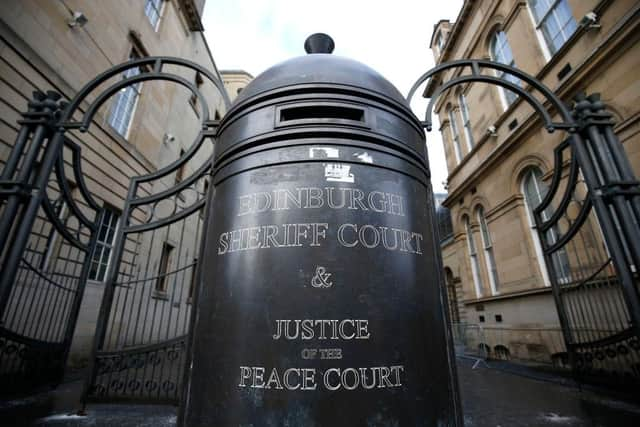Abolishing Scotland's not proven verdict and holding rape trials without juries could lead to miscarriages of justice – Brian Wilson
Once, when the matter was still occasionally debated, he mused about the moral burden of being the hangman and possibly killing an innocent person. A very right-wing Tory MP intervened to say that he would gladly take the job. Heath replied that the question was not if he would volunteer to be the hangman but whether he was willing to be hanged.
It is a useful perspective from which to measure any proposed changes in the criminal legal system, the objective of which should be to deliver justice rather than play to any public gallery. Incarcerating innocent people is one of any society’s more serious offences.
Advertisement
Hide AdAdvertisement
Hide AdThe Scottish legal system, while doubtless imperfect, does its best to avoid such outcomes. As every Scottish schoolboy used to know, our distinctive prosecutorial system is based on a duty to establish facts and leave the court to decide. I’ve always thought that to be a rather noble principle particularly since, as a trial evolves, the evidence can become inconvenient.
An ambition to secure more convictions, rather than a higher degree of justice, is a dubious basis for legal reform. Listening to some proponents of changes which the Scottish Parliament will now be asked to approve, it seemed that this distinction is in danger of being lost. That approach also risks being counter-productive.
Much of the focus has been on cases of rape which result in a much higher proportion of not proven verdicts than the system as a whole. On one interpretation, this simply reflects the fact that these cases are more difficult to determine where no third party is involved. The jury therefore takes refuge in an option which, loosely translated, means “we’re not sure”.
Campaigners to abolish “not proven” assume that in the absence of that option, more convictions would be secured. That is not necessarily rational since “not sure” should in turn translate into “not beyond reasonable doubt”. If instead it evolves into “not sure but we’ll convict him anyway”, the risk of wrongful convictions increases.
There are no party politics in this. Efforts to abolish “not proven” have tended to come from the Labour side; Donald Dewar as far back as 1969 and, most recently Michael MacMahon when his attempt at Holyrood was defeated by votes from all other parties, mainly on grounds that the Scottish system hangs together as a whole and can only be reformed accordingly.


The Victims, Witnesses and Justice Reform Bill tries to address that by reducing the size of juries from 15 to 12 and removing the simple majority principle. This is seen as a balance to abolishing “not proven” by making it necessary to convince a higher proportion of jurors. Again, it is a contrivance which offers no obvious likelihood of justice being more accurately delivered.
It is also intended to “pilot” rape cases without juries at all but this should be viewed with the greatest suspicion. The right to trial by a jury of one’s peers is a fundamental principle which should not be messed about with in pursuit of a predetermined objective. Judges are no more infallible than juries.
Whether spoken of or not, the Alex Salmond case hangs over this debate in its current manifestation. The tumbrils were set to roll, Madame Defarge was in her place and the political obituaries had been written.
Advertisement
Hide AdAdvertisement
Hide AdThen, having heard all the evidence at first hand rather than relying on surrounding publicity, 15 random Scots delivered a different conclusion from one that campaigners and commentariat had anticipated. On the Heath principle, that is a powerful case study in defence of Scotland’s jury system rather than an argument for getting rid of it, even as a pilot. Others will disagree.
Piecemeal changes to how the courts operate will not improve statistics that matter more. Cases that actually reach court are the tip of an iceberg (particularly in rape cases) and conviction rates once they get there are otherwise generally high. Better-resourced police and courts would be a safer route to more prosecutions, more convictions and more justice.
